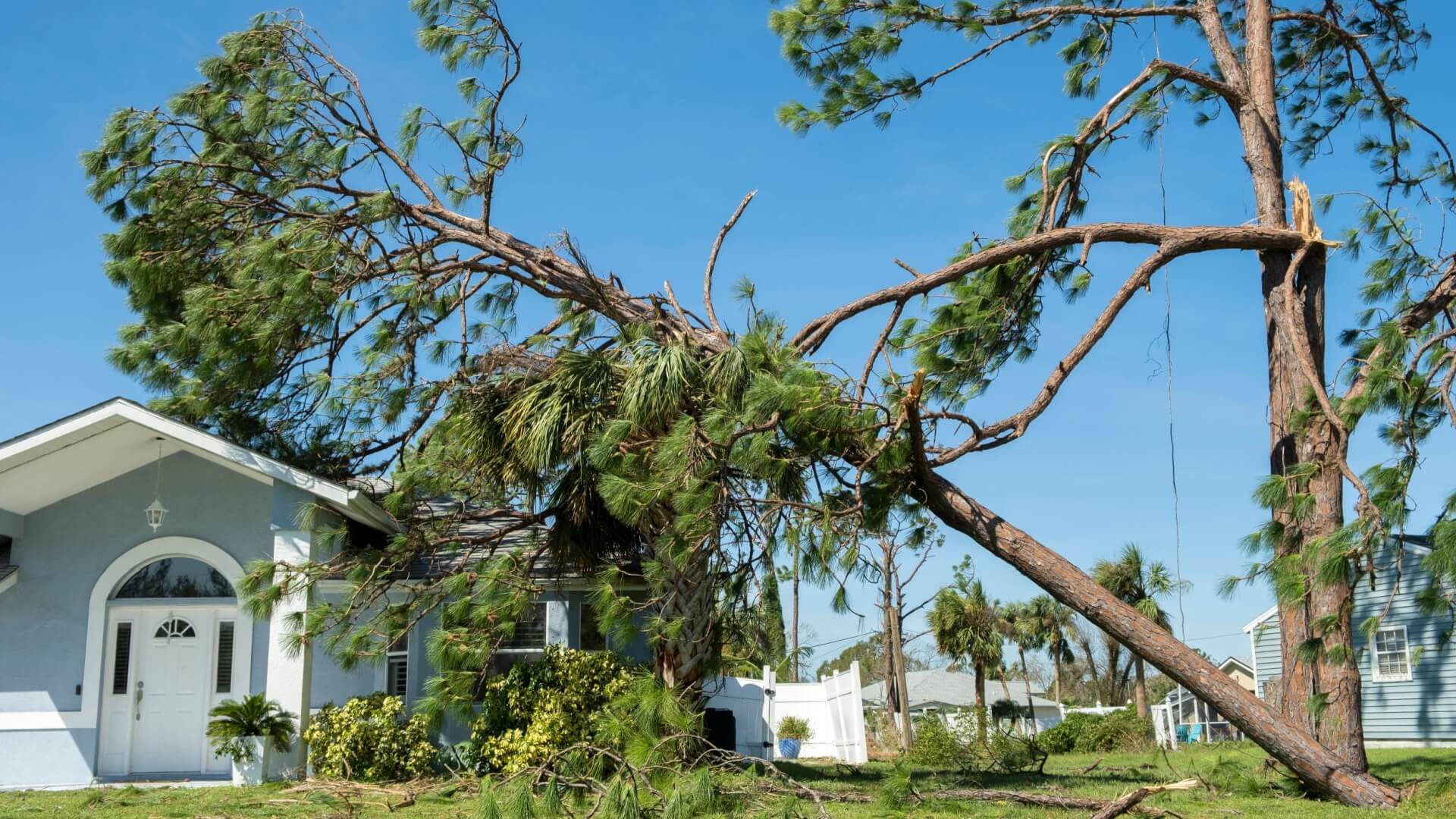The fire insurance claim process can feel overwhelming for Florida homeowners reeling from the shock of fire damage. However, understanding the key steps involved can make the path forward clearer and less intimidating. Here’s a quick breakdown to get you started:
- Assess the Damage: Document everything with photos and logs.
- Notify Your Insurer: File your claim promptly.
- Secure Temporary Living Arrangements: Your policy may cover expenses.
- Prevent Further Damage: Take steps to safeguard your property.
- Explore Compensation Options: Understand replacement costs versus cash value.
Fire damage is not just about charred walls and ruined possessions; it’s the distress and uncertainty that follow. Homeowners often find themselves facing fears of financial instability as they steer insurance claims to recoup their losses. Comprehending the fire insurance claim process is crucial for finding your footing in such daunting circumstances.
Once a fire hits your property, your home is more than just visually damaged—it becomes a source of anxiety and doubt. How quickly will you be reimbursed? What exactly is your policy covering? When will your life return to normal? These are the questions that race through a homeowner’s mind.
Understanding your policy’s provisions and taking immediate action can ease the burden. In the following sections, we will guide you through each step to help you avoid common pitfalls and ensure you receive fair compensation.
Steps in the Fire Insurance Claim Process
Navigating the fire insurance claim process after a fire can be daunting, but breaking it down into manageable steps can help. Here’s what you need to do:
Document the Damage
First, capture the extent of the fire damage with photographs and videos. This visual evidence is crucial when you file your claim. A detailed inventory of your damaged personal belongings is also important. List each item, its value, and when you purchased it. This will serve as your proof of loss and support your claim with the insurance company.
Secure Your Property from Further Damage
After documenting the damage, focus on securing your property to prevent further harm. This might involve using board-up services for broken windows or tarping the roof to stop water damage. These steps are not just practical; they show the insurance company that you’re taking measures to mitigate further loss. Preventing vandalism is also key, so consider placing barriers around your home if it’s vacant.
Consider Living Expenses
If the fire has made your home uninhabitable, you’ll need to arrange temporary housing. Your insurance policy may cover these living expenses, including lodging, food, and basic essentials. Keep all receipts for reimbursement. This coverage can ease the financial burden while you wait for repairs.
File the Insurance Claim
Contact your insurer as soon as possible to start the claims process. Provide them with your documentation, including the photographs, inventory, and any other relevant information. You’ll likely work with a claims adjuster, who will assess the damage and help determine your compensation. Filing a proof of claim will be necessary, detailing all losses and their estimated value.
Call a Restoration Professional for an Estimate
Finally, get a repair estimate from a restoration professional. This estimate will give you an idea of the costs involved in restoring your home. The insurance adjuster will use this information to help determine your settlement amount. Make sure to choose a reputable professional to ensure accurate repair costs.
Types of Compensation in Fire Insurance Claims
When dealing with a fire insurance claim, it’s important to understand the different types of compensation you might receive. This can help you make informed decisions and know what to expect from your insurance provider.
Replacement Cost vs. Cash Value
Replacement cost and cash value are two common methods used to determine compensation for damaged items.
- Replacement cost covers the amount needed to replace your items with new ones, up to your policy limits. This means if your couch was destroyed, you could get a new one of similar kind and quality.
- Cash value considers depreciation. You receive compensation for what the item was worth at the time of the fire, not what it would cost to replace it. This is often less than the replacement cost because it accounts for wear and tear.
Your policy will specify which method applies. Sometimes, you may need to purchase replacement items first and then submit receipts for reimbursement under replacement cost policies.
Mortgage Company Involvement
If you have a mortgage, the mortgage company might be part of the claim process due to their financial interest in the property. Here’s how they might be involved:
- Check Endorsement: Often, the insurance payout check will include the mortgage company’s name. They need to endorse it before you can use the funds. This ensures the money is used for repairs, protecting their investment.
- Escrow for Repairs: Funds for repairs might be held in an escrow account. The mortgage company may release money in stages as repairs are completed, ensuring the home is restored properly.
Understanding these aspects of your fire insurance claim can help ensure that you receive fair compensation for your losses.
Tips for a Smooth Fire Insurance Claim Process
Here are some essential tips to help guide you through a smooth claim process:
Mitigate Further Damage
After a fire, your first priority should be preventing any additional harm to your property. This not only protects your home but also strengthens your claim.
- Use Tarps and Secure Property: To prevent weather damage, cover any exposed areas with tarps. Board up windows and doors to secure your home against potential vandalism.
- Prevent Vandalism: It’s crucial to act quickly to secure your property. Insurance policies often require you to take reasonable steps to prevent further damage. Failing to do so might affect your claim.
Keep Detailed Records
Maintaining thorough records is vital throughout the claim process. This includes documenting damage, interactions, and expenses.
- Report Promptly: Notify your insurer as soon as possible after the fire. Prompt reporting can help expedite the claims process and prevent unnecessary delays.
- Detailed Inventory: Create a comprehensive list of damaged items. Include photographs, purchase records, and any other proof of ownership. This detailed inventory will support your claim and help in determining compensation.
- Record Interactions: Keep track of all communications with your insurance company. Note the date, time, and details of each interaction, including the names of the people you spoke with.
- Track Expenses and Keep Receipts: Document all expenses related to the fire, such as temporary housing or repair costs. Retain all receipts and invoices as proof for your insurer.
Get Accurate Estimates
Obtaining precise estimates for repairs is crucial.
- Call a Restoration Professional: Hire a restoration professional to assess the damage and provide an accurate repair estimate. This can help ensure that the insurance adjuster’s assessment aligns with the actual costs.
By following these tips, you can streamline the fire insurance claim process and help ensure you receive the compensation you’re entitled to. Next, we’ll address frequently asked questions about the fire insurance claim process.
Frequently Asked Questions about the Fire Insurance Claim Process
How does a fire insurance claim work?
The fire insurance claim process begins the moment you report the loss to your insurer. This is called the First Notice of Loss (FNOL). It’s crucial to do this promptly to avoid any delays. Once reported, you’ll need to provide proof of the claim, which includes detailed documentation of the damage, such as photographs and an inventory of lost items.
After submitting your claim, the insurance company will send an adjuster to assess the damage. The adjuster will evaluate the extent of the loss and determine the settlement amount. It’s important to provide accurate information and maintain open communication with the adjuster to ensure a fair assessment.
How long does it take to get money from a house fire?
The timeline for receiving settlement funds after a house fire can vary significantly. Typically, the process can take anywhere from a few weeks to several months. Factors that influence this timeline include the complexity of the claim, the extent of the damage, and the efficiency of the documentation you provide.
Promptly reporting the loss and supplying thorough documentation can help expedite the process. However, potential delays may occur if there are discrepancies in the claim or if additional documentation is required. Be prepared for these possibilities and maintain regular communication with your insurer to keep the process moving forward.
What not to say to an insurance claim adjuster?
When speaking with an insurance claim adjuster, it’s important to be cautious about what you say. Avoid admitting fault or making statements that could be interpreted as accepting blame for the fire. Stick to the facts and provide only the necessary information to support your claim.
Refrain from offering unnecessary details that might complicate your case. It’s also wise to avoid discussing settlement amounts or accepting any offers on the spot. Take the time to review any settlement proposals carefully and seek professional advice if needed to ensure that the offer is fair and meets your needs.
Understanding these key aspects of the fire insurance claim process can help you manage the situation more effectively and negotiate a fair settlement.
Contact EC Law Counsel For Help With Fire Damage Claims
When it comes to navigating the fire insurance claim process, having the right guidance can make all the difference. At EC Law Counsel, our mission is to help you recover the compensation you deserve. With our experience in the property insurance industry, we know how to handle every step of the claims process efficiently.
Our team understands the emotional and financial strain that fire damage can cause. That’s why we’re committed to securing fair settlements for our clients. We work diligently to ensure that your claim is processed smoothly and that you receive the compensation needed to rebuild and recover.
If you’re facing the aftermath of a fire, you don’t have to go through it alone. Let EC Law Counsel be your trusted partner in insurance recovery. Contact us today to learn how we can assist you in achieving a deserved settlement.





